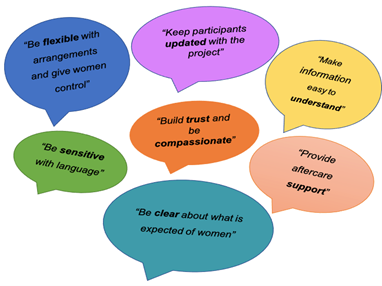Maternal health and child protection: key messages so far from public engagement
By h.craig, on 24 January 2022
My name is Claire, and I’m a PhD student at University College London (Staff profile link). I am conducting research into maternal health and child protection in England. Throughout my project, I hope to better understand the health and healthcare needs of birth mothers who have had their children subject to care proceedings.
In England, ‘care proceedings’ (Section 31 of the Children’s Act 1989) allow the family court to make decisions about where children live, and who they live with, when there are significant concerns over child welfare (i.e., in instances of abuse or neglect).
What is my research looking at?
Women who have children subject to care proceedings (or ‘birth mothers’) often have multiple and complex health needs. These might include substance misuse issues, mental health difficulties and other chronic health conditions (e.g., poor physical health). My project is trying to better understand how we can support these health needs before, during and after involvement with family courts. I am using linked routinely collected data between women’s health and family court records (further described in this link to my research method), alongside in-depth interviews with birth mothers, to understand what ‘good’ healthcare might look like. I will also be conducting an online survey with healthcare professionals who support these families, including doctors, nurses, and health visitors, to identify some of the challenges in delivering good quality healthcare in this context.
Using linked data between family courts and health services can be useful for identifying how families interact with public services across time. Examples of such research investigating birth mothers can be found in England (PDF evidence of research), Scotland (PDF evidence of research) and Wales (PDF evidence of research).
Why is public engagement important?
I want to ensure that the research I am conducting is meaningful and acceptable to those affected by issues of child protection. Conducting work ‘with’ members of the public, rather than ‘to’ or ‘about’ them can improve the quality, acceptability, and impact of research. There are different ways in which members of the public can be involved and approaches will vary between projects. If you are thinking of including public engagement as part of your research, you should consult the UCL Public Engagement team to discuss options (publicengagement@ucl.ac.uk mail link).
For my research, I decided to set up a project specific advisory group. This is a group that brings together people who are willing to share their thoughts on my project and be kept updated with its progress. Having the same members involved throughout can be useful when there are specific queries, as they become more familiar with the topic area and methods used. I also wanted to involve members of the public early on in my research journey, to ensure discussions formed part of a research co-creation, rather than just a forum to disseminate my work.
What was my public engagement journey?
I applied for funding through the UCL Culture ‘Listen and Learn (Weblink for more information’ grant, which was aimed at inviting voices not often heard in academic settings into an online conversation. The money was used to support a workshop session with two collaborating organisations:
- Pause (organisational website) is an organisation working to support women who have had a child removed from their care and are at risk of future child removals. Pause offers an intense programme of trauma-informed and person-centred support to women.
- VOICES (organisational website) is a survivor-led charity supporting women with experience of domestic abuse to recover, which also provides a platform for survivors to share their insights to improve services.
Staff and clients at these organisations are well placed to advise on the direction and conduction of research into child protection and maternal health.
Method
Throughout July and August 2021, I hosted two online workshops (one for each partner organisation) to discuss research in this area with staff and clients. The conversation was interactive and flexible to allow for discussion of broader topics related to health and child protection. A notetaker also attended these sessions and a summary feedback sheet was created and shared with attendees.
What are some key messages so far?
Use this link to download a PDF of the key feedback

What is next for my public engagement?
I have been awarded a Train and Engage bursary grant to continue this work into 2022. The money will be used to compensate collaborators and facilitate a ‘knowledge-exchange’ partnership which will be integrated throughout my PhD.
Acknowledgements
Many thanks to the women and staff at Pause and VOICES for their time and thoughtful feedback, and to the UCL Culture team for supporting this conversation. My PhD is funded by the ESRC UBEL Doctoral Training Programme (ref: ES/P000592/1) and this engagement work was supported by a public engagement bursary from UCL Culture.
 Close
Close


